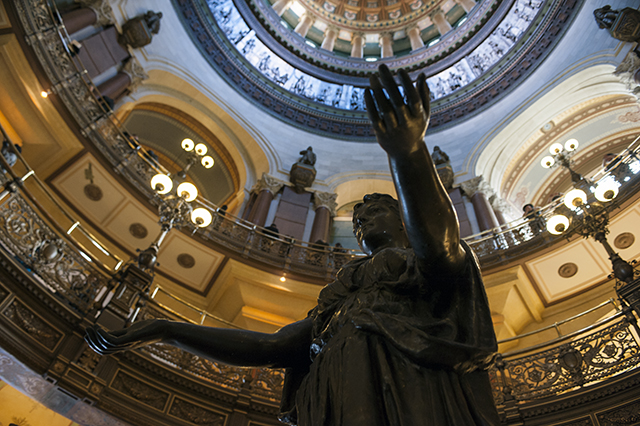At Long Last, Illinois Is Finally On The Verge Of A Budget
By Stephen Gossett in News on Jul 5, 2017 5:03PM

The state's seemingly interminable budget impasse appears to finally be nearing its end.
Lawmakers over the long Independence Day weekend came to an agreement on spending and budget bills, with 15 GOP legislators breaking rank to advance a long-awaited budget deal from both chambers to Gov. Rauner's desk. (Fourteen Republican House representatives voted across the aisle; one state Senator did, also.)
The accompanying $36 billion spending measure is expected to generate $5 billion in revenue for the cash-strapped state. It would raise personal income tax rates from 3.75 percent to 4.95 percent—a figure closer to , but still lower than, a previous rate that was allowed to sunset when Rauner assumed office. Corporate income tax rates will climb from 5.25 percent to 7 percent.
As pledged, Rauner vetoed the measure on the busy Fourth of July, calling it a "32 percent permanent income tax increase." The budget does not meet Rauner's twin demands for a property tax freeze or stripping back workers' compensation.
But the Senate overrode the veto, and House members could follow suit as soon as Thursday. Speaker Mike Madigan says he has the votes, according to the Tribune.
I just vetoed Speaker Madigan's 32% permanent income tax increase. pic.twitter.com/Hn5SPm0w2h
— Bruce Rauner (@GovRauner) July 4, 2017
The likely passage means the state would narrowly avoid an unprecedented credit downgrade to "junk" status, which would have resulted in escalated borrowing costs and fewer potential investors.
Illinois recently entered its third year without a state budget. In that time, the state has seen its finances crumble, with a deficit now at $6 billion and overdue bills totaling more than $15 billion. State universities and social services that have been dealt severe blows during the impasse would start to see funding to help prevent or reverse layoffs under the budget. It also adds $350 million for funding to Chicago Public Schools (although that's tied to separate legislation that would re-do the state education funding mechanism). The bill would also allow the city of Chicago to refinance its pension payments to city workers.
The Responsible Budget Coalition on Monday applauded House passage on Monday while urging both chambers to also address the state's mounting backlog. "Neither the Senate nor the House has addressed our $15 billion backlog in back bills, which will continue to drain the state’s resources until we establish a clear and comprehensive plan to address our debt," RBC said in part in a statement. "Still, passing a revenue and spending plan is tremendous progress towards our overriding goal of a fully funded, year-long budget supported by permanent new revenue."